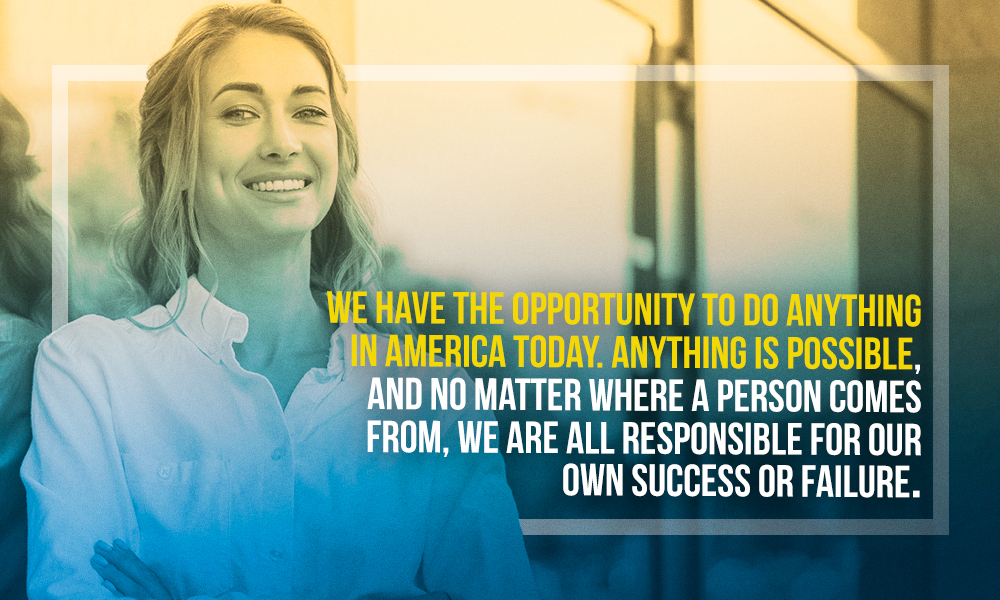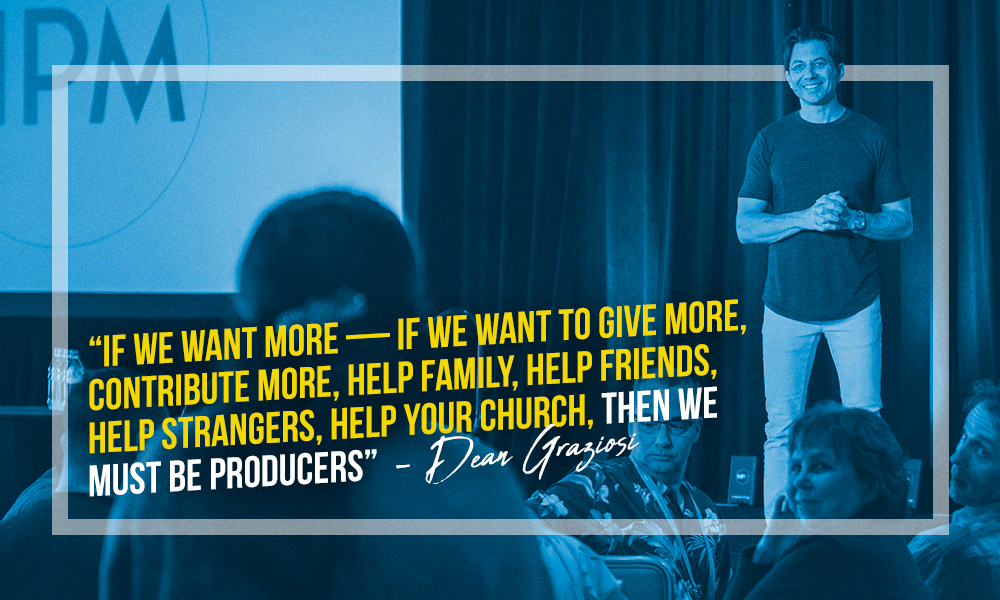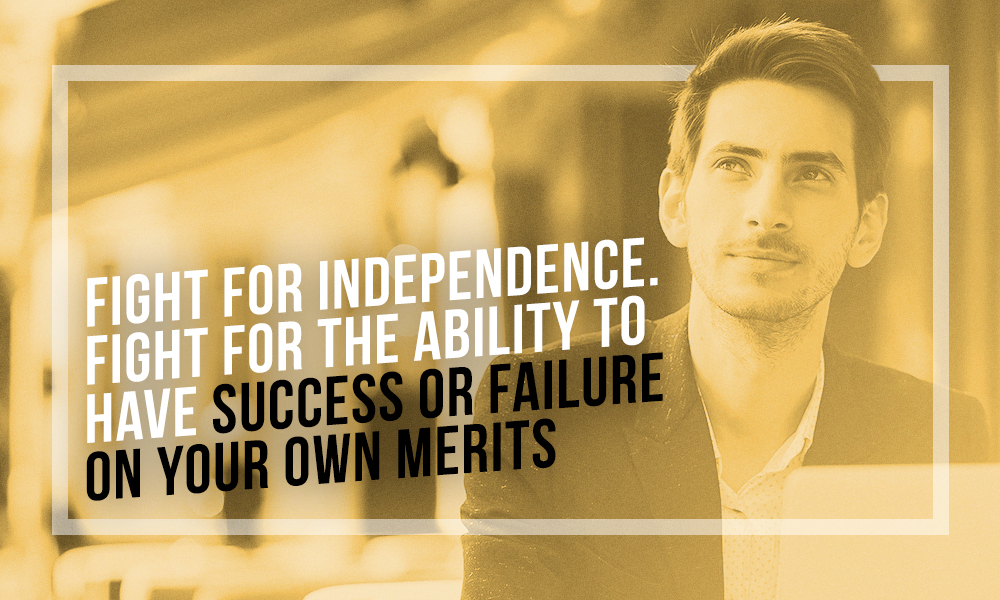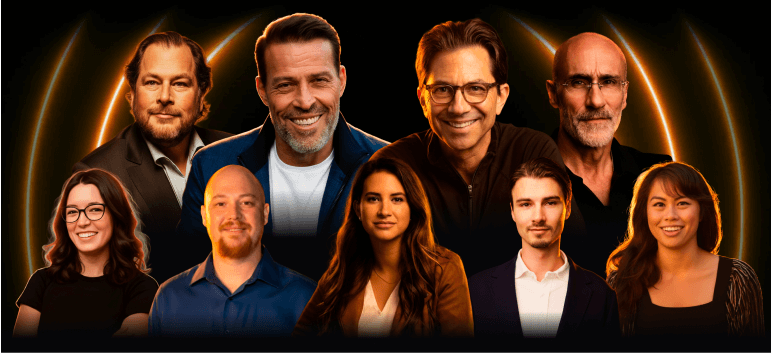There are two types of people in the world—those who create and give value everywhere they go, and those who take, surviving off of other people’s provision. Dean Graziosi calls these two groups producers and parasites. In this article, Dean Graziosi talks about the difference between the two types of people and how to model your life after the producers so you can learn how to succeed, how to build wealth, and how to give back.
Characteristics of Producers Vs. Parasites
It might sound harsh to say that there are producers and parasites in this world, but according to Dean Graziosi, it’s not a new concept. There have always been two types of people—those who contribute and those who complacently live off of others.
Producers are creators. They give value, and they always strive to do more and achieve more no matter what they’re doing. They don’t mind hard work, they invest in learning, and they enjoy serving alongside others to help make the world a better place. Producers strive to continually improve themselves. They realize if they’re not climbing, they’re sliding. If they’re not growing, they’re dying.
“If we want more—if we want to give more, contribute more, help family, help friends, help strangers, help your church, then we must be producers,” said Graziosi
Parasites, on the other hand, focus on getting what they can, when they can. They expect the world to serve them, and they carry around the feeling that they’re owed something. When things don’t go wrong or don’t turn out like they had hoped, it’s automatically someone else’s fault, and they’re not shy about voicing their opinions on – Dean Graziosihow they’ve been wronged.
How is Society Affected by Parasites?
Depending on what is going on in the world at the time, the effect of having more parasites than producers in society at one time can be severe. This relationship reminds Graziosi of the relationship between a fish and a type of aquatic parasite called ciliates. Ciliates survive by attaching themselves to the skin of a healthy fish. If having a brand new hitchhiker was the only side effect the fish experienced, the impact the ciliate had wouldn’t be too profound. Unfortunately, ciliates have a short life cycle and reproduce rapidly. The infestation quickly overwhelms the healthy fish and causes rapid infection and death (Petty & Francis-Floyd, 2021).
Likewise, a few people living off of others in society has little effect. Too many in proportion to the producers of society, however, and things start to collapse. And in Graziosi’s opinion, we’re seeing an increase in that type of situation in society right now.
“At this time in history, whether it’s COVID, too many years of soft times, or too much entitlement in the world, those who blame others—those that want more equality for not putting the work in—are actually the ones with the loudest voice, and the producers in the world are the ones keeping quiet,” he said.
This scares Graziosi because it’s the producers and the value creators who drive the economy in America.

Producers and the American Dream
We have the opportunity to do anything in America today. Anything is possible, and no matter where a person comes from, we are all responsible for our own success or failure. People from around the world have gone to great lengths to come to America in hopes of having the opportunity to create a better life for themselves.
Why? Graziosi says it’s because in America, a person can be a producer no matter where they came from or how much money they have. If a person puts forth the effort and energy and is willing to grit it out and accept the risk, they can learn how to build a business and how to succeed.
“My grandparents came from Italy with nothing, not $1 in their pocket,” said Graziosi. “They couldn’t even speak the language. Two generations later, I get to live an abundant life and secure my family and take care of the people I love and impact the world.”
His wife had a similar background. Her parents came from Mexico with nothing but a seventh-grade education. Just a few decades later, she and her five siblings were all in business for themselves and doing well. America is a place where producers and value creators can thrive.
Missing the Opportunity to Create
Graziosi believes that living as a producer and value creator is one of the most fulfilling lifestyles there is. Is it a risk to start a new business? Yes. Is the journey to entrepreneurship full of hard work and challenges. Definitely, but it’s worth it.
There’s a direct correlation between a person’s willingness to work through challenges and the level of growth they’ll achieve. Strong times create strong people, and strong people create good times. It’s only when society leans too hard on the good times and stops prioritizing producing and creating value that things start to break down. There’s another side to the “strong times” analogy. Strong people create good times, and good times create weak people.
Does that mean we shouldn’t enjoy the good times? No. It just means we can’t stop going after opportunities, stepping out, and taking calculated risks. We can’t stop growing, producing, and creating value. We can’t threaten to take away someone’s opportunity to dream, then go out and fight for that dream.

Living the Dream
Dean Graziosi is a strong believer that the last thing you ever want to do is take away someone’s opportunity to dream. When people stop believing they can do more and achieve more than they are currently experiencing and leave a legacy for future generations, they stop producing. They stop giving back.
The reason the concept of the “American dream” is so powerful is because of opportunity. And this opportunity is something Graziosi experienced firsthand. Growing up, he slept in a bathroom with my dad, because they didn’t have money to pay for heat, and the bathroom was the only room small enough to hold in the heat from their small electric heater. There were times he paid for his dollar lunch at school with pennies, sometimes skipping lunch just to avoid the embarrassment.
He determined at a young age that he wasn’t going to settle for the same struggle his parents had. He worked hard and took every opportunity that came his way, and he was able to retire both his parents before he hit age 30. He went from being a struggling student with dyslexia to become a multiple New York Times bestselling author. To date, he’s started 13 companies and has experienced more success than I could ever imagine possible as a kid.
“That happens when you live in a land where you have the opportunity to grow based on your own merits,” said Graziosi. “When you know that no one is coming to save you, and accept that no one owes you anything in life, that’s when you do your best.”

The Danger of Equality
Is equality dangerous? When it comes to treating people with human kindness and decency, no. Holding everyone to the same level of achievement, however, is a different story. Graziosi believes this mentality robs people of the knowledge they can do more, be more, and achieve more.
“It’s not a time to criticize those that have achieved more,” he said. “It’s not a time to criticize capitalism. Capitalism is what made America so powerful because it allows people no matter what their background a person can achieve, do more, and produce value in this world.”
His teenage daughter recently switched to a new school and was taught about socialism for the first time. She couldn’t understand why there is a whole group of people who feel the wealthy should denounce what they have and give up their private businesses.
Are people with money greedy? Should everything be more equal? Graziosi’s answer is no.
Imagine you’ve worked for years, day in and day out, honing and perfecting an innovative technique for treating cancer. You’ve invested hundreds of thousands of dollars to obtain the education and doctorate degrees that make you the top expert in your field. You’ve also put in the labor and sweat equity to create and test and study and report on your findings. Now it’s time to present your findings to the powers that be for funding approval so you can train physicians and specialists on how to use your proven technique and save people’s lives.
Instead of the green light, you’re expecting, you find out later the funding was given to the other guy – the one with the bachelor’s degree who’d slapped together a last-minute pitch on latex gloves. How can this be? Your discovery … all the work … all the lives that would have been impacted …
Surely it’s a mistake. You approach the chairman of the board to ask how they had come to their decision, and his response goes something like, “Well, you already received funding four years ago when you set up your lab. This guy never has. So we’re just trying to keep things equal.”
THAT kind of equality is a mistake. It slows progress and productivity. It takes away people’s motivation and drive to create. Worst of all, it endangers the economy and people’s lives.
Fight for independence. Fight for the ability to have success or failure on your own merits. Do not let anyone try to take away your opportunity to grow and your opportunity to create something lasting for future generations.
More with Dean Graziosi
There will always be people who are producers and people who are parasites. It’s only when you have more parasites than producers that the world shifts and the opportunity to grow is over. Don’t let anybody take that away. Fight for the chance to be the value creator, the producer, and the one in your family who helps shift the world.
Listen to the entire episode on “How to Lead Like a Producer Instead of Living Like a Parasite” now on The Dean Graziosi Show in the iTunes store, or on PodBean, Spotify, or Stitcher. For more inspirational stories and messages like this, check out Dean’s website at deangraziosi.com or watch his videos on YouTube at https://www.youtube.com/c/deangraziosi.
Petty, B. D., & Francis-Floyd, R. (2021, October 26). Parasitic diseases of fish – exotic and laboratory animals. Merck Veterinary Manual. Retrieved November 3, 2021, from https://www.merckvetmanual.com/exotic-and-laboratory-animals/aquarium-fishes/parasitic-diseases-of-fish


